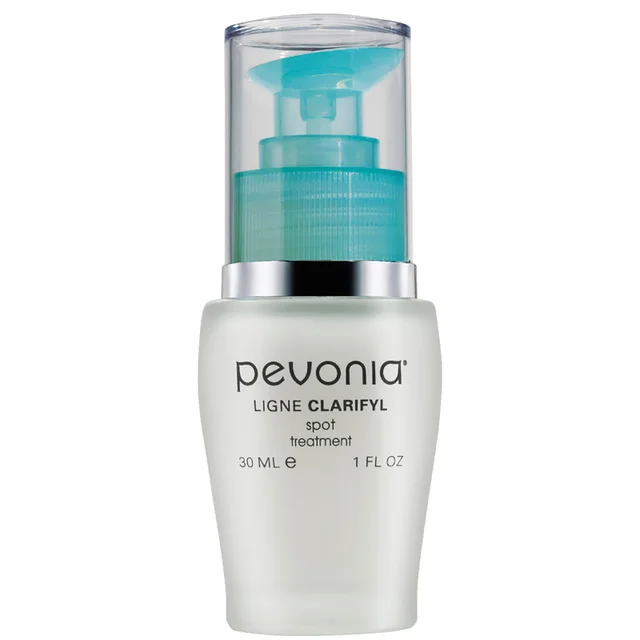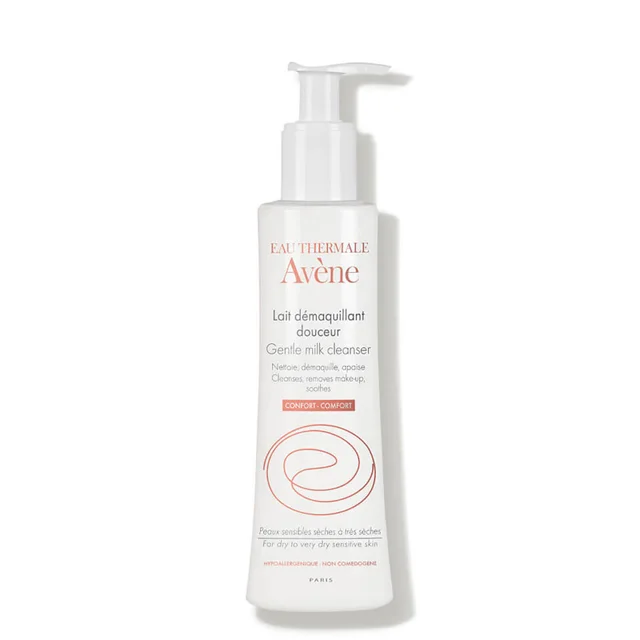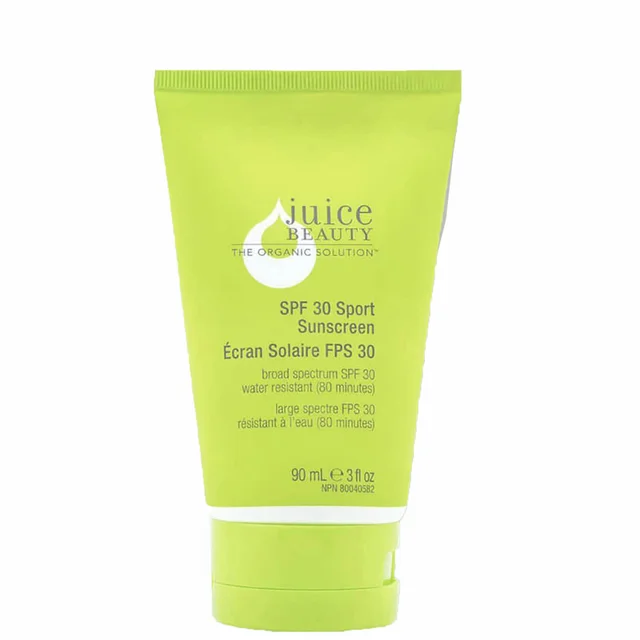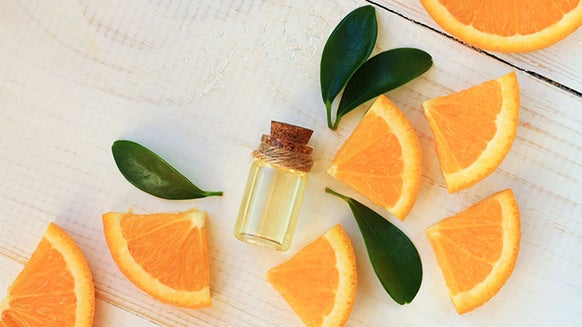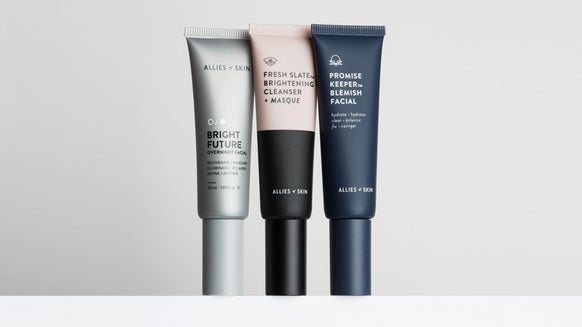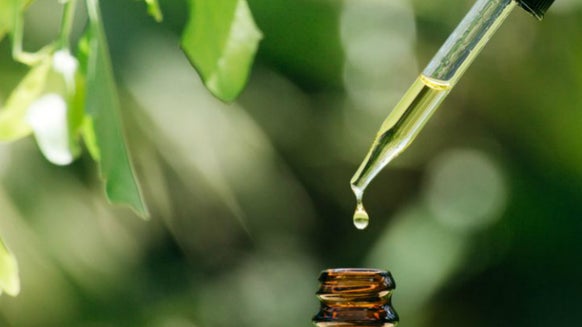Worst Skin Care Advice (Ever), According to Dermatologists
From the time you start dabbling with makeup in your teenage years to when you start battling acne or consider developing a personal anti-aging routine, everyone in your life will have an opinion on skin care. While your grandma and mom might swear by certain products or regimens, your best friend might suggest trying a more modern approach. Whatever the words of wisdom you’re being handed, it’s important to take them all with a grain of salt. According to dermatologists, plenty of the tips they’ve heard from patients are not only inaccurate but could be problematic for breakouts, sun damage and other issues.
Here, dermatologists share the absolute worst pieces of advice they’ve ever heard to make sure you avoid making these skin health blunders:
1. “Toothpaste can clear up your skin.”
Remember in middle school when you had a slumber party with your best friend and she shared the goods on how she fights those pesky pimples with good ol' fashioned toothpaste? You might have been excited about this DIY solution when you were 13, but now that you’re an adult, it’s time to upgrade to a product that actually works.
Dermatologist Shilpa Agrwal, M.D., explains that toothpaste can dry out zits because it has hydrogen peroxide, baking soda and alcohol, but in reality, it doesn’t do much for your skin. “You may experience redness, irritation and even superficial burns from all the harsh ingredients. I had patients that have damaged their skin from applying toothpaste on it and it took them weeks to heal,” she says. Instead, Dr. Agrwal suggests using an over-the-counter acne spot treatment that has salicylic acid or benzoyl peroxide. Or, for a more natural acne solution, consider a bentonite clay spot treatment or even a diluted tea tree oil, which has great antibacterial properties.
Try: Kate Somerville EradiKate Acne Treatment
2. “Chocolate causes acne.”
While there may be an ounce of truth to this, Dr. Evans reminds us that there is never one certain food that will cause everyone to break out, since everyone has their own individual chemical makeup. Instead of skipping out on those chocolate cravings because your sister warned you that you’ll end up with a zit the size of a Hershey’s Kiss, be mindful of what you’re eating and how your skin reacts. While your sister’s skin might not get along with chocolate, it could be nuts that entice your acne. “Foods that are far more commonly linked to acne include dairy, salt, processed grains, white, bleached flour products and foods with a high glycemic index,” Dr. Evans adds.
3. “The more you scrub and wash your face, the clearer your skin will be.”
If your skin is acne-prone, you probably already know how important it is to ensure your skin cells don’t get clogged from excess sweat, heavy makeup or bacteria that could inflame your sensitive pores. But “not washing your face enough” isn’t the reason you’re breaking out, according to dermatologist Dr. Tsippora Shainhouse M.D., FAAD. In fact, if you scrub too hard or too often, you could be making your breakouts worse. Instead of doing a deep cleanse on the daily, Dr. Shainhouse suggests using a gentle cleanser to wash your face, along with a makeup remover to ensure every last bit of mascara, foundation and blush is off your face. And if you like to exfoliate, she advises limiting this to only twice a week. “If your skin is sensitive or prone to breakouts, choose an enzyme-based product over a rough, grainy one,” she adds.
Try: Eminence Clear Skin Probiotic Cleanser
4. “You don’t need sunscreen when the sun isn’t out.”
Repeat after us (and after Dr. Shainhouse): no matter the weather, the temperature or the climate, you need to wear sunscreen every single day. “Damaging UV rays are present on hot summer days, as well as bright, cold winter ones. UV passes through glass, clouds and reflects off of sand, water, snow and ice,” she explains. Underneath your makeup and your clothes, she suggests applying a broad-spectrum 30 SPF sunscreen, being mindful to reapply every few hours in continuous sun exposure, heavy sweating or swimming.
Try: Juice Beauty SPF 30 Sport Sunscreen
5. “Mayonnaise can work as a face mask.”
Depending on what part of the country or the world you grew up in, you either adore mayo or despise it. But regardless if you put it in your burger or dip your french fries in it, Dr. Agrwal says you should never use it as a hydration mask. While some people may claim that the fat and oils within this condiment help to add moisture to your skin and repair a damaged skin barrier, Dr. Agrwal says that’s definitely not the case.
“The thickness and excessive oils in this home remedy can clog pores and cause breakouts. It can also lead to the overgrowth of skin bacteria which is another cause of acne,” she explains. Instead, Dr. Agrwal advises seeking out products that use hyaluronic acid. “Hyaluronic acid is an essential component of your skin's natural barrier and serums or masks based off of this ingredient can help plump your skin,” she explains.
Need a mask for dry skin? Read this: How to Find the Best Face Masks for Dry Skin
6. “The sun will clear up my skin.”
You may have given your face some freedom from cakey-makeup when you were lounging by the pool last weekend, but that extra dose of vitamin D doesn’t actually clear up any imperfections, according to dermatologist Dr. Stanley Kovak. Instead, the heat and exposure to the sun dry out your skin, which makes it prone to producing more oil. “Tanning also fosters sweating, which can lead to clogged pores. Tanning can also causes hyperpigmentation of the skin which can make pre-existing scars appear even darker,” he says. That’s why it’s super important to apply sunscreen and keep your face protected from the harmful rays.
7. “Let your wounds breathe in the air.”
When a gnarly zit pops or you brush up against a sharp object that causes an unfortunate wound, your dad might remind you to let the wound breathe to make it heal faster. Dermatologist Robin Evans, M.D. says the opposite is actually true since many studies have proven that wounds heal better when it’s kept moist. “There is no need to allow them to dry out and get air, since this may actually impair healing,” she explains. The best way to keep wounds moist is to apply a topical ointment like Neosporin or polysporin, or even Vaseline and keep it covered with a Band-Aid.

From the latest hair and makeup trends to the best solutions for your skin issues, we've got all your beauty concerns covered!
